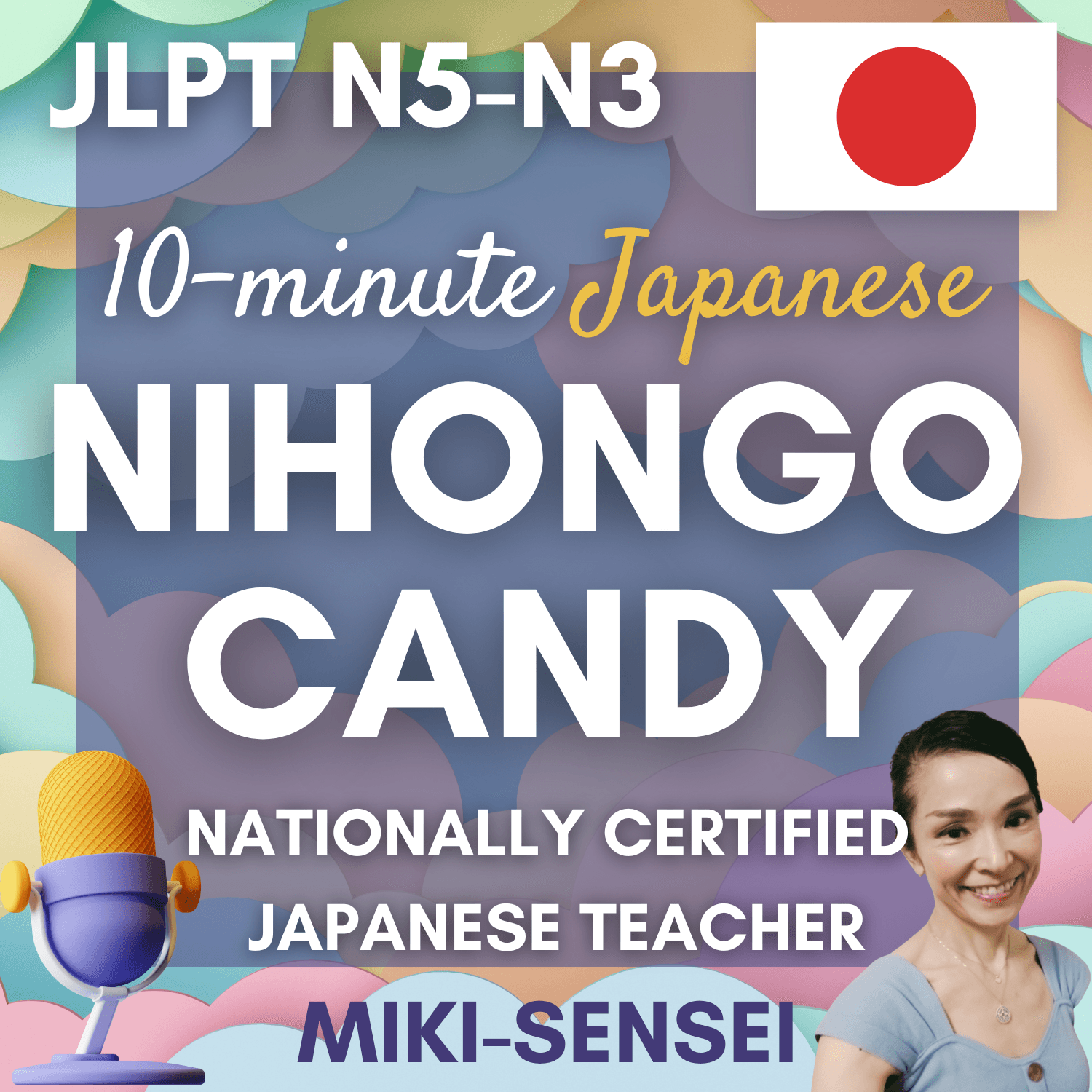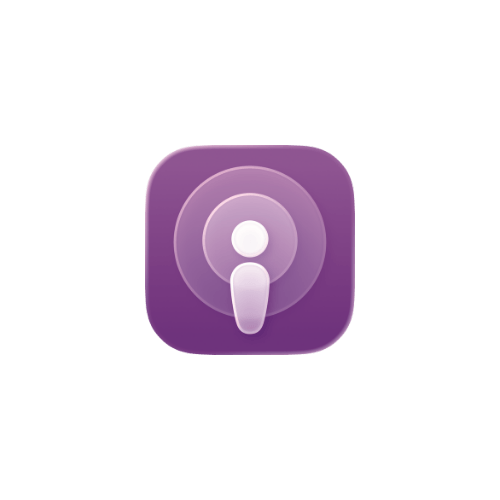
【 Podcast NIHONGO CANDY #115 】Enjoying Expressions 楽しみ・楽しむ \/ tanoshimi・tanoshimu

Introduction
Today we're exploring two essential Japanese words that will help you express excitement and enjoyment: 「楽しみ」(tanoshimi) and 「楽しむ」(tanoshimu).
The noun 楽しみ means "something to look forward to" or "pleasure," while the verb 楽しむ means "to enjoy" or "to have fun." Both words are related to the adjective 楽しい (tanoshii) meaning "fun" or "enjoyable," but they're used in different ways.
By the end of this episode, you'll confidently use three essential phrases: 楽しみにしています (tanoshimi ni shite imasu), それは楽しみですね (sore wa tanoshimi desu ne), and 楽しんでください (tanoshinde kudasai). These expressions are crucial for natural communication in both business and casual settings.
Section 1: Basic Understanding of 楽しみ and 楽しむ
Let's start by understanding the relationship between these words and 楽しい.
The adjective 楽しい means "fun," "enjoyable," or "pleasant." You use this to describe experiences, activities, or situations. For example, 「東京ディズニーランドは楽しかったです」(Tookyoo Dizuniirando wa tanoshikatta desu) means "Tokyo Disneyland was fun."
The noun 楽しみ comes from this same root but means "something you look forward to," "pleasure," or "enjoyment." It represents both future anticipation and current sources of fun or pleasure. For example, 「旅行が楽しみです」(ryokoo ga tanoshimi desu) means "I'm looking forward to the trip."
The verb 楽しむ means "to enjoy" or "to have fun doing something." It describes the action of enjoying an experience. For example, 「パーティーを楽しみました」(paatii wo tanoshimishita) means "I enjoyed the party."
The key difference is timing and usage: 楽しい describes how something was or is, 楽しみ can express both anticipation for future events and current sources of enjoyment, and 楽しむ describes the action of enjoying something.
Section 2: Using 楽しみ - Looking Forward to Things
Let's explore how to use the noun 楽しみ with the most important phrase pattern.
The most essential phrase is 「楽しみにしています」(tanoshimi ni shite imasu) meaning "I'm looking forward to it." This phrase is incredibly useful in both business and personal situations. The grammar pattern is: [event/activity] + o楽しみにしています.
In business contexts, you can say 「プレゼンを楽しみにしています」(purezen o tanoshimi ni shite imasu) meaning "I'm looking forward to your presentation," or 「来月お会いするのを楽しみにしています」
(raigetsu oai suru no o tanoshimi ni shite imasu) meaning "I'm looking forward to meeting you next month."
In casual situations, you might say 「週末を楽しみにしています」
(shuumatsu o tanoshimi ni shite imasu) meaning "I'm looking forward to the weekend," or 「誕生パーティーを楽しみにしています」(tanjoo paatii o tanoshimi ni shite imasu) meaning "I'm looking forward to your birthday party."
Another common pattern is simply using 楽しみ as a noun with です. For example, 「週末の温泉旅行が楽しみです」(shuumatsu no onsen ryokoo ga tanoshimi desu) means "I'm looking forward to this weekend's hot spring trip."
When someone tells you about their plans, you can respond with 「それは楽しみですね」(sore wa tanoshimi desu ne) meaning "That sounds exciting" or "That should be fun." This is a perfect response when people share good news or interesting plans with you.
Section 3: Using 楽しむ - The Action of Enjoying
Now let's learn how to use the verb 楽しむ in different situations.
The basic pattern is: [activity/event] + o楽しむ meaning "to enjoy [activity/event]." For example, 「音楽を楽しみます」(ongaku o tanoshimimasu) means "I enjoy music," or 「友達との時間を楽しみました」(tomodachi to no jikan o tanoshimishita) means "I enjoyed the time with friends."
One of the most important phrases using this verb is 「楽しんでください」(tanoshinde kudasai) meaning "Please enjoy yourself" or "Have fun." This is essential for when you want to wish someone well before they do something enjoyable. You can use it when someone is going on vacation, attending an event, or starting any pleasant activity.
For example, if a colleague is leaving early for a concert, you can say 「コンサート、楽しんでください」(konsaato, tanoshinde kudasai) meaning "Please enjoy the concert."
If someone is going on a business trip that includes sightseeing, you might say 「出張、楽しんでください」(shucchoo, tanoshinde kudasai) meaning "Please enjoy your business trip."
You can also use 楽しむ to describe enjoying ongoing activities. For example, 「毎週末、ハイキングを楽しんでいます」(maishuu matsu, haikingu o tanoshinde imasu) means "I enjoy hiking every weekend."
Section 4: Essential Communication Patterns
Let's practice the three most important phrases that will make your Japanese sound natural and polite.
First, 「楽しみにしています」- This phrase works in almost any situation where someone mentions future plans or events. If your coworker says they're having a presentation next week, you can respond 「楽しみにしています」.
If a friend mentions they're cooking dinner for you, say 「楽しみにしています」. It shows interest and positive anticipation.
Second, 「それは楽しみですね」- This is perfect for responding to good news or interesting plans. When someone says 「来月、京都に行きます」(raigetsu, Kyouto ni ikimasu - I'm going to Kyoto next month), you can respond 「それは楽しみですね」.
It's more natural than just saying 「いいですね」(that's nice) because it shows you understand they're excited about it.
Third, 「楽しんでください」- Use this when saying goodbye to someone who's about to do something enjoyable. Whether they're going to a party, starting their vacation, or even just going to lunch at a nice restaurant, 「楽しんでください」 is always appropriate and shows thoughtfulness.
These three phrases will cover most situations where you need to express or respond to enjoyment and anticipation in Japanese.
Section 5: Practical Examples and Situations
Let's practice using these words in realistic conversation situations.
Situation 1: You're invited to a company dinner party next week.
You can say: 「食事会を楽しみにしています」(shokuji-kai o tanoshimi ni shite imasu) meaning "I'm looking forward to the dinner party."
Situation 2: A friend is telling you about their upcoming trip to Hokkaido.
You can say: 「それは楽しみですね。おいしいシーフードを楽しんでください」(sore wa tanoshimi desu ne. Oishii shiifuudo o tanoshinde kudasai) meaning "That sounds exciting. Please enjoy the delicious seafood."
Situation 3: Someone asks about your weekend plans and you mention going to a festival.
You can say: 「お祭りに行く予定です。とても楽しみです」(omatsuri ni iku yotei desu. Totemo tanoshimi desu) meaning "I plan to go to a festival. I'm really looking forward to it."
Section 6: Practice Translations
Let's practice translating these English sentences into Japanese using 楽しみ and 楽しむ.
"I'm looking forward to meeting you all."
「皆さんに会うのを楽しみにしています。」
(Minasan ni au no o tanoshimi ni shite imasu.)
"Your friend got hard-to-get tickets and is going to a concert. How do you say, 'That's great. Have fun!'"
「よかったですね。楽しんでください。」
(Yokatta desu ne. Tanoshinde kudasai.)
"I enjoyed the time with my family."
「家族との時間を楽しみました。」
(Kazoku to no jikan o tanoshimishita.)

Our Weekly Podcast
Practicality first! A weekly podcast that helps you master useful expressions and vocabulary you can start using in everyday conversations right away. Follow and listen, and you’ll find the dots connecting—your conversation skills will naturally improve.
BLOG CATEGORY
WELC Language Services - Copyright 2025 | TERMS of SERVICE | PRIVACY POLICY



